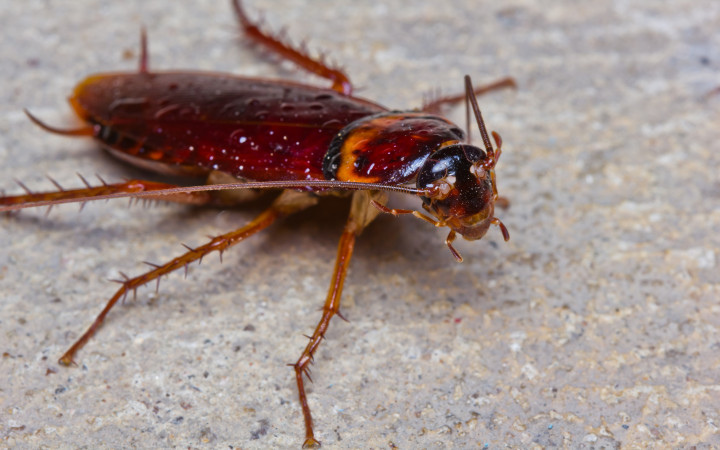Today’s Wonder of the Day was inspired by Marcus. Marcus Wonders, “Could a cockroach survive a Nuclear war?” Thanks for WONDERing with us, Marcus!
Have you ever been cleaning out the garage or the basement when a hard-shelled bug crawled out from under something and scared you? You might have shouted, “Eek!" or “Yikes!" or even “Ewww!"
Today in Wonderopolis we're going to be taking a closer look at one of the most hated of all creepy crawlies: the cockroach. Although this insect is often seen as a dirty, disease-carrying pest, you'll soon learn there are a lot of myths out there about the cockroach.
The cockroach comes in an amazing number of different types. Scientists believe there are over 4,500 different species of cockroach around the world. Of those thousands of species, only about 30 of them have been associated with human habitats and only about four of them are true pests.
Here are the common and scientific names of a few of the best-known species of cockroaches:
- American cockroach (Periplaneta Americana)
- German cockroach (Blattella germanica)
- Asian cockroach (Blattella asahinai)
- Oriental cockroach (Blatta orientalis)
Although most cockroaches are not true pests, some species have been known to carry the germs that cause tuberculosis, leprosy, typhoid, salmonella, and a whole host of other diseases. This is why many people believe cockroaches are dirty and potentially dangerous. In reality, though, most of the thousands of species of cockroaches live in areas far away from humans.
Scientists believe that cockroaches have lived on Earth about 100 times longer than human beings have. They are known for being tenacious and hardy insects that can withstand all sorts of adverse conditions. Some people believe cockroaches could even survive a nuclear war!
So how hardy are they? Would you believe that some species of cockroaches can survive for several weeks without their heads? It's true! Cockroaches do not bleed like human beings do, and they can breathe through most of the parts of their bodies. So if a cockroach gets accidentally decapitated, its body can often survive another few weeks without its head!
Why are cockroaches that are pests so hard to control? One reason is that they'll eat just about anything — from glue and soap to books and hair. Moreover, one tiny meal can satisfy a cockroach for up to six weeks. Can you imagine going that long without food? Cockroaches can go so long between meals because special bacteria that live in their cells produce all the vitamins and amino acids they need to live.
Cockroaches are so resilient that they've been known to go without air for up to 45 minutes. Some cockroaches can even recover from being held underwater for 30 minutes or more. But could they really survive a nuclear war?
No one knows for sure, and we hope we never find out! Cockroaches do have a much higher resistance to radiation than human beings, but they're not necessarily any more immune to nuclear radiation than other insects.
If you find you have cockroaches around the house, it is best to get rid of them. As you've learned they can survive for a very long time with very little food — and what they consider food can be just about anything. Given that they can carry disease and scientists have linked them to increased chances of allergic reactions and asthma, it's best to keep them out in the wild where they belong!




